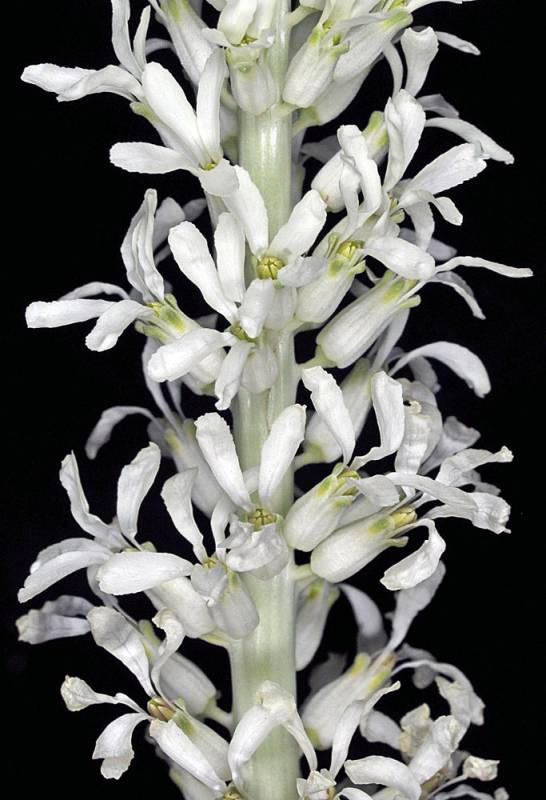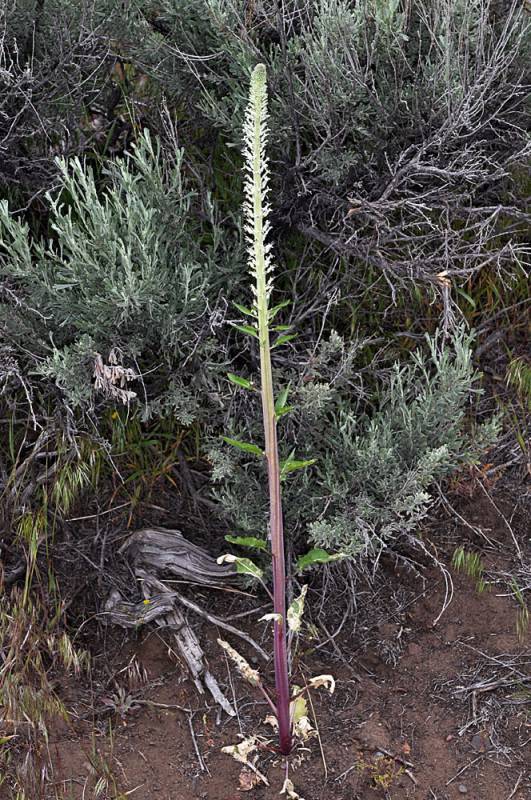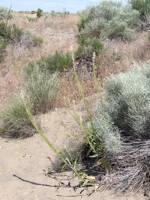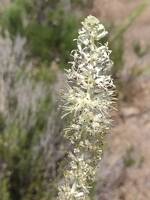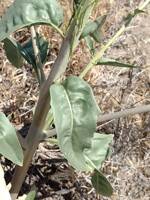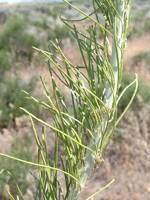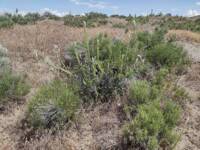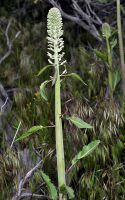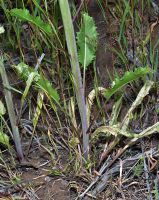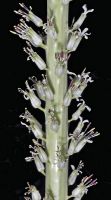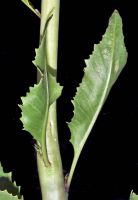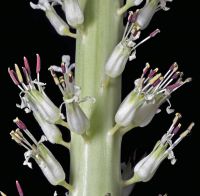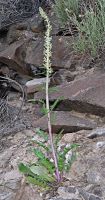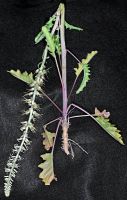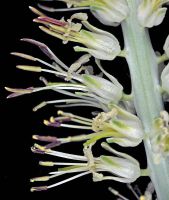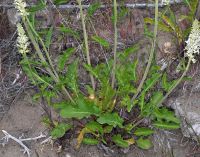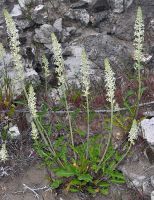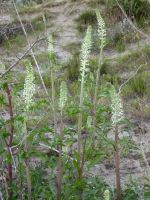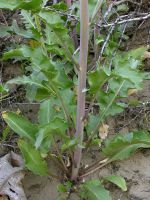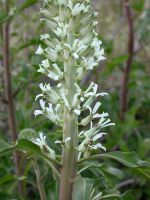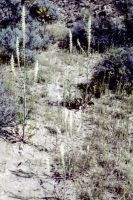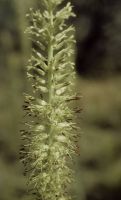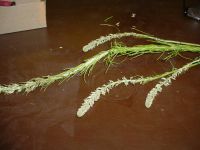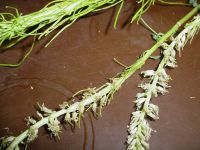Distribution: Occurring east of the Cascades crest in Washington; southern British Columbia to Nevada, east to Idaho.
Habitat: Rock cliffs and dry, rocky areas in sagebrush desert.
Flowers: April-July
Origin: Native
Growth Duration: Biennial
Conservation Status: Not of concern
Pollination: Bees, flies, butterflies
Glabrous and glaucous biennial, the stem often hollow, usually freely-branched, 3-25 dm. tall.
Leaves rather fleshy, the basal ovate to deltoid-lanceolate, 1-4.5 dm. long, long-petiolate, sharply and deeply lobed; cauline leaves alternate, numerous, reduced upward, pinnatifid to nearly entire.
Inflorescence of bractless, elongate racemes; pedicles stout, 2-5 mm. long, erect-ascending; sepals 4, erect, 3.5-7 mm. long, white, not saccate at the base; petal 4, white, 6-20 mm. long, linear to narrowly spatulate; stamens 6, the filaments flattened, distinct, shorter than the sepals; style 1-3 mm. long.
Siliques erect, straight to strongly curved, 3-6 cm. long and about 1 mm. thick, on a stipe 1-4 mm. long; seeds in 1 series.
Publication: Bot. Gaz. 52: 263. 1911. 1911.
PNW Herbaria: Specimen records of Thelypodium milleflorum in the Consortium of Pacific Northwest Herbaria database.
WA Flora Checklist: Thelypodium milleflorum checklist entry.
OregonFlora: Thelypodium milleflorum information.
E-Flora BC: Thelypodium milleflorum atlas page.
CalPhotos: Thelypodium milleflorum photos.
USDA Plants: Thelypodium milleflorum information.

